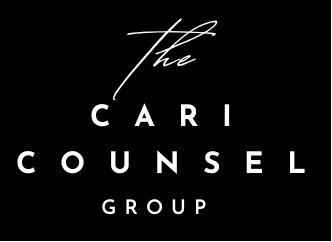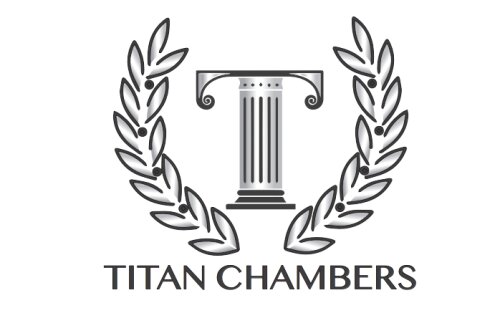Best Class Action Lawyers in Trinidad and Tobago
Share your needs with us, get contacted by law firms.
Free. Takes 2 min.
Or refine your search by selecting a city:
List of the best lawyers in Trinidad and Tobago
About Class Action Law in Trinidad and Tobago
Class action law in Trinidad and Tobago is a legal mechanism that allows multiple individuals with common grievances to sue collectively in a single lawsuit. This approach is particularly efficient when dealing with cases involving numerous plaintiffs who have experienced similar harm or issues, such as consumer rights violations or environmental damage. While class action suits can provide strength in numbers, they also require careful legal navigation to ensure that all participants' interests are adequately represented.
Why You May Need a Lawyer
Engaging with a lawyer for class action suits in Trinidad and Tobago is essential for several reasons. First, legal professionals are adept at navigating the complexities of class action proceedings, ensuring that all legal requirements are met for the case to proceed. Additionally, a lawyer can help determine if a class action suit is the best course of action for your situation, can gather and file necessary documentation, and can adeptly represent and protect your interests during negotiations or courtroom proceedings. Situations that may necessitate seeking legal counsel include instances of widespread consumer fraud, defective products causing injury, or violations of environmental regulations affecting a community.
Local Laws Overview
Trinidad and Tobago's legal system, based substantially on English Common Law, includes provisions for class action suits, although such lawsuits are less common than in jurisdictions like the United States. Key legal aspects relevant to class action suits include the requirement for a "representative plaintiff," who acts on behalf of the group, and the necessity for the group to demonstrate commonality in their claims. Legal procedures must be strictly followed, beginning with the certification of the class, after which the case can proceed to trial or settlement negotiations.
Frequently Asked Questions
What is a class action lawsuit?
A class action lawsuit is a legal action taken by a group of people collectively with similar claims against one or more defendants.
How do I know if I am part of a class action suit?
You may be notified by mail or public notice if you are a potential member of a class action. The notification will typically come from the law firm representing the class.
Do I need to pay to join a class action lawsuit?
In many cases, law firms take on class action cases on a contingency fee basis, meaning they only get paid if the lawsuit is successful.
Can I be part of multiple class action lawsuits at the same time?
Yes, it is possible to be part of multiple class action lawsuits if each suit addresses different issues or harm experienced by you.
What happens if the class action lawsuit is successful?
Successful class actions can result in a settlement or judgment where compensation is distributed among class members, attorney fees, and possibly an incentive award for the lead plaintiff.
How long does a class action lawsuit take to resolve?
The duration varies widely, depending on the complexity of the case and how quickly the legal proceedings progress. On average, class actions may take several years to resolve.
Can I pursue my own lawsuit if I am part of a class action?
Typically, being part of a class action means waiving the right to sue individually on the same claims, but specifics can vary. Always consult with a lawyer for advice tailored to your situation.
How is the settlement divided in a class action lawsuit?
The settlement is usually divided among all class members according to the degree of harm each experienced. Administrative fees and attorney expenses are also deducted from the settlement fund.
What if I don't want to be part of a class action lawsuit?
You have the right to opt-out of a class action lawsuit, but you must do so within a specific timeframe and following certain procedures, usually outlined in the class notification.
Is my participation in a class action confidential?
Typically, the legal proceedings are a matter of public record, but personal information is often kept confidential. Speak with your attorney about any privacy concerns.
Additional Resources
For further guidance, consider reaching out to the Law Association of Trinidad and Tobago, which might provide legal aid resources and information. Additionally, governmental bodies like the Consumer Affairs Division can offer advice and help with consumer rights issues. Legal clinics at the University of the West Indies or community-based legal aid services may also offer assistance.
Next Steps
If you believe you may have grounds for or be involved in a class action lawsuit, the first step is to consult with a lawyer experienced in this field. Gather all relevant documentation related to your case, identify any communication from potential class action representatives, and be prepared to discuss your experience in detail. Legal professionals can help determine the viability of your case and advise on the necessary steps to take moving forward. Additionally, it is wise to stay informed about the progress of any ongoing or potential class action suits you might be part of.
Lawzana helps you find the best lawyers and law firms in Trinidad and Tobago through a curated and pre-screened list of qualified legal professionals. Our platform offers rankings and detailed profiles of attorneys and law firms, allowing you to compare based on practice areas, including Class Action, experience, and client feedback.
Each profile includes a description of the firm's areas of practice, client reviews, team members and partners, year of establishment, spoken languages, office locations, contact information, social media presence, and any published articles or resources. Most firms on our platform speak English and are experienced in both local and international legal matters.
Get a quote from top-rated law firms in Trinidad and Tobago — quickly, securely, and without unnecessary hassle.
Disclaimer:
The information provided on this page is for general informational purposes only and does not constitute legal advice. While we strive to ensure the accuracy and relevance of the content, legal information may change over time, and interpretations of the law can vary. You should always consult with a qualified legal professional for advice specific to your situation.
We disclaim all liability for actions taken or not taken based on the content of this page. If you believe any information is incorrect or outdated, please contact us, and we will review and update it where appropriate.
Browse class action law firms by city in Trinidad and Tobago
Refine your search by selecting a city.












